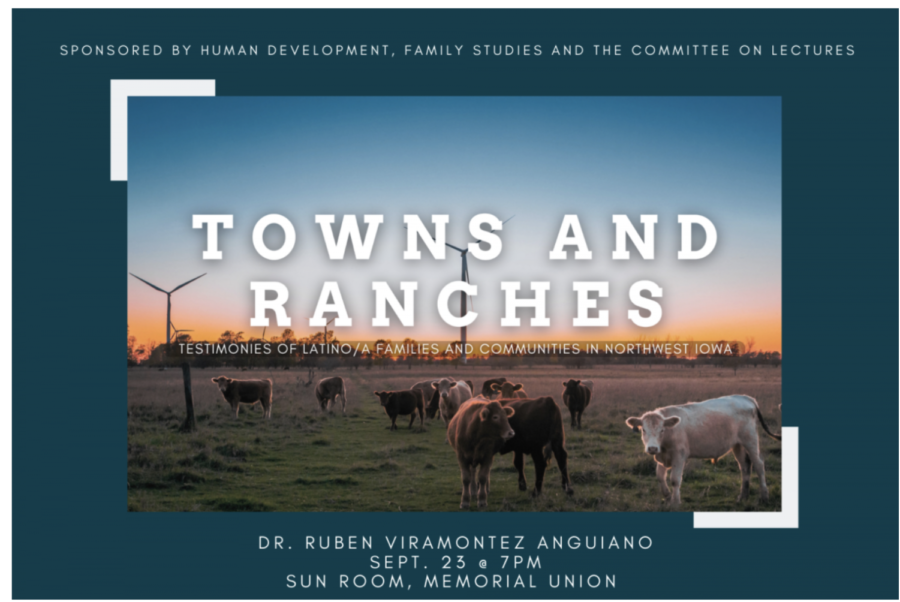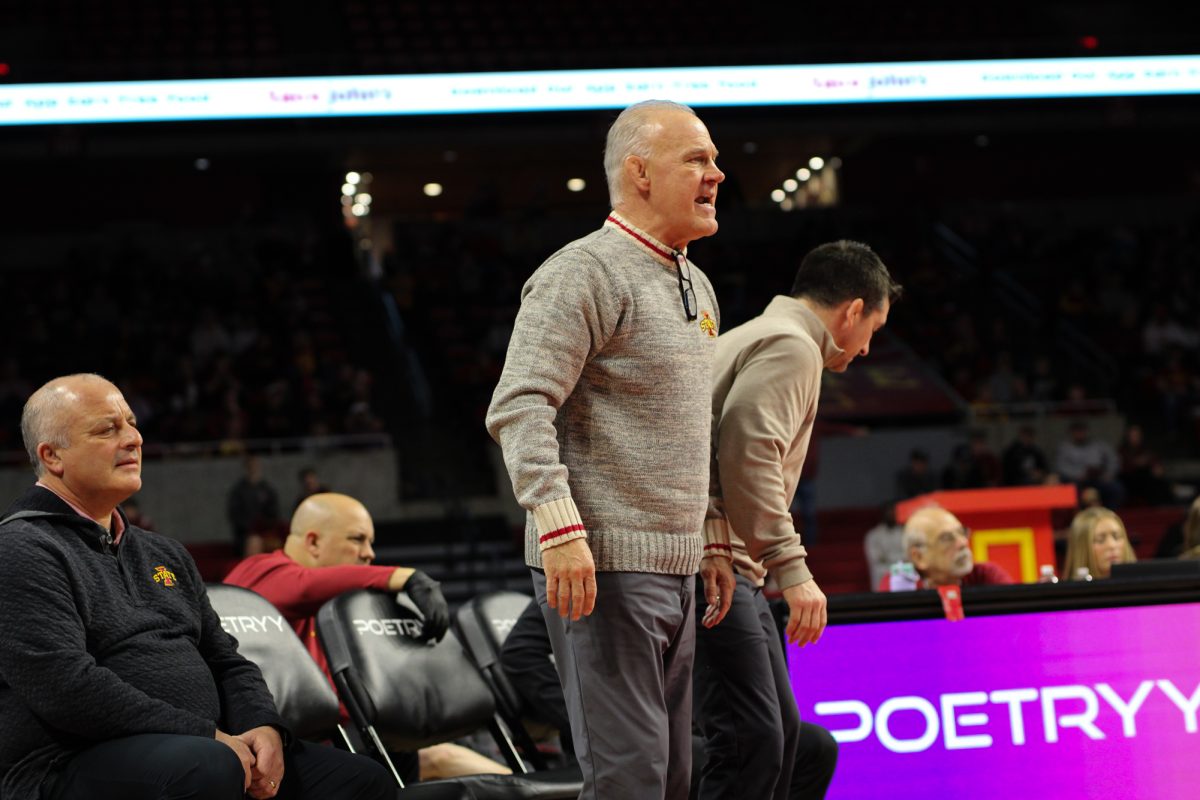Towns and Ranches showcases guest speaker Dr. Ruben Viramontez Anguiano
The Iowa State University Lecture Series hosted a discussion with Dr. Ruben Viramontez Anguiano of the University of Colorado about Latino life in northwest Iowa.
September 23, 2021
Students filled seats on Thursday night in the Memorial Union waiting to hear speaker Dr. Ruben Viramontez Anguiano, Founding Chair and Professor of the Human Development and Family Relation Program at the University of Colorado, as he led the Towns and Ranches event.
Sponsored by Human Development, Family Studies and the Committee on Lectures, this event was available to all Iowa State students and community members.
An acknowledgment to the native people who live in Iowa today and the Ioway Nation, which is the territory that Iowa State University is located on, started off the event.
Anguiano began his story by sharing his experiences at Iowa State University and how professors worked to help start his college career, even though he was not confident in himself based on past education and poor testing skills.
“The purpose of the study was to explore the role of Latino fathers in their children’s lives and education in Northwest Iowa,” said Anguiano. “A goal was to understand the Latino family values and generational differences and the adaptation of Latino families and communities to rural Iowa. Another objective was to understand the role of community leaders in Latino families and communities in rural Iowa.”
His plan was to give students the tools and opportunities to understand these topics and goals because without them they are unable to fully understand these experiences.
Last year, Anguiano spent his time in northwest Iowa researching Latino-run farms and towns, despite the difficulties of the pandemic. He found information through observations, interviews, and documentary data that allowed him to find details of social experiences. To recruit Latino fathers from Latino families, a purposive sampling technique was used.
A closed-down bowling alley turned into a successful restaurant is one example of a business he saw be recovered by a Latino family.
The pandemic hit these families in a way many people have not experienced. Anguiano said that Latino families working on farms were getting sick from COVID-19, but people did not care because they wanted their products. The families had to continue working through sickness because they were afraid of losing their jobs. In this case, it was the children who had to stand up and be there for their fathers.
Anguiano shared the difference between Latino fathers of the past to today. He said fathers today know to work hard, but they also know the importance of being involved in their children’s lives. Thirty years ago, working hard and all day was the only thing that mattered.
Going to their children’s concerts, performances and other events is something Anguiano believes is an important value for modern-day Latino fathers. No matter how long they had to work that day, they still made time for their children.
Values of religion, spirituality and respect were consistent through every age range he studied. It was obvious for him to see that sons, fathers and grandfathers all showed respect to others in their communities.
Hypermasculinity is something he no longer saw in younger generations. He grew up with a hypermasculine father who did not show emotion.
“It’s important to stand up for yourself and your culture and your family and your faith,” said Anguiano. “But you don’t have to be tough. Just as long as you’re a good man. A man with character.”
At the end of the event, attendees were able to ask questions for Anguiano to answer about Latino families, communities and his research.
Future events held by the Committee of Lectures can be found on their website.







